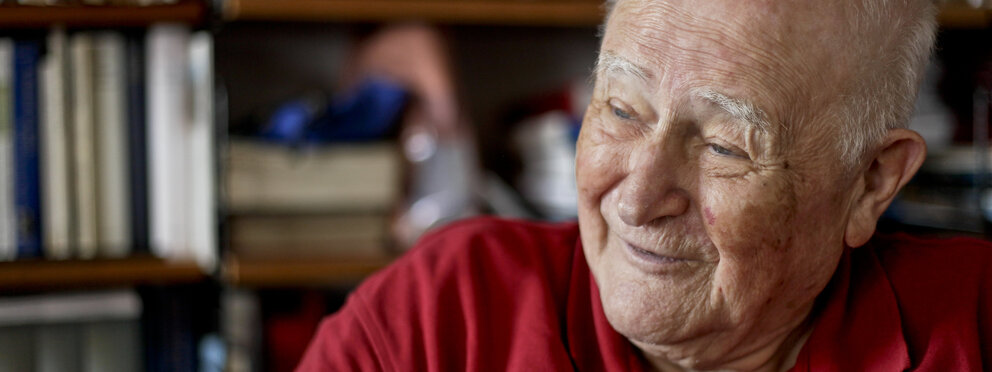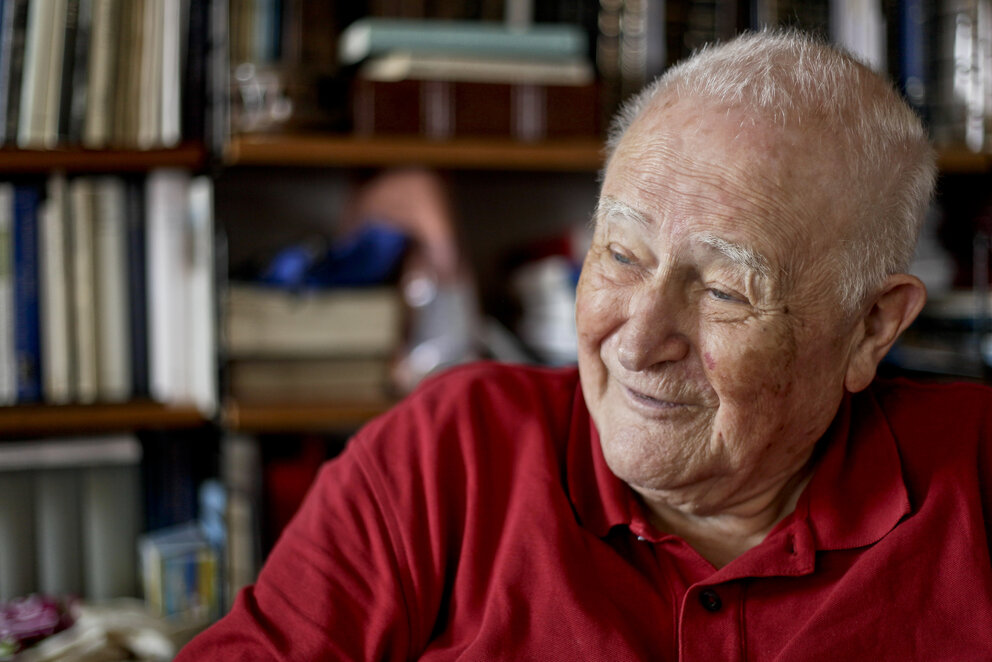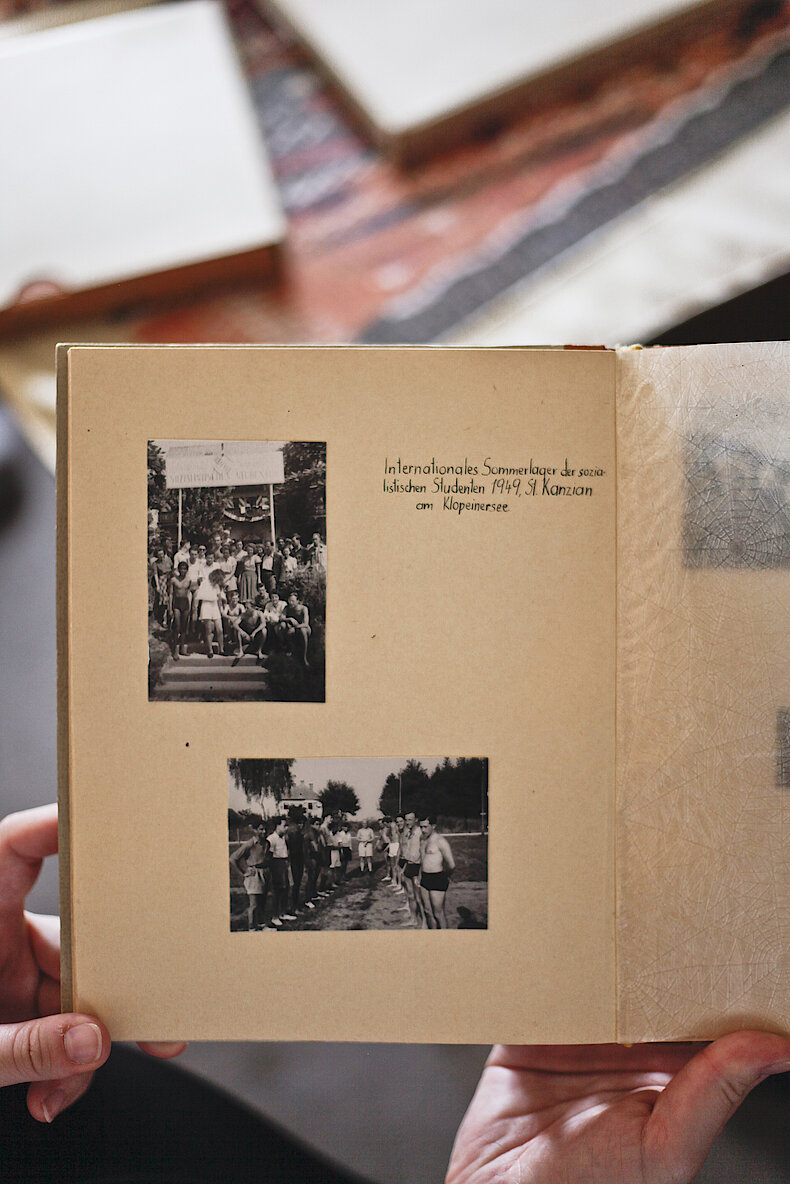
Gerhard Baader
About Gerhard Baader
Gerhard Baader was born in 1928 to a Jewish mother and a non-Jewish father in Vienna, where he also grew up. In 1938, with the annexation of Austria to Nazi Germany, the Baader family also lived in constant fear as they were centrally affected by the persecution. Although Gerhard was lucky enough to be able to attend a regular school until 1942, as a "half-Jew" he had to sit in the back row - on the "Jews' bench" - and was subjected to constant hostility. As the political situation worsened, he was expelled from school and conscripted into forced labour. He worked for two years in a Viennese company for sanitary and electrical installations and was sent to a labour camp in 1944, where he had to carry out heavy earthworks, among other things. Fortunately, Gerhard Baader survived the war.
He caught up on his A-levels, studied and taught as a medical historian at the Free University of Berlin for many years. He was particularly interested in the role of medicine in the Nazi era and the Nazi murder of the sick ['euthanasia']. But even in old age, he was still politically active, travelled a lot, visited schools and universities and took part in lectures and conferences.
Gerhard Baader died in Berlin on 14 June 2020.
"To be ready for commitment, to be ready for action, to stand up for a humane society in which there is room for us all."

A picture to live on
After the war, Gerhard Baader joined a political youth group, which can be seen in the picture. His political commitment as a social democrat and his sense of justice helped him to find his way back into life after the war. The group cohesion and the social contacts he made in the course of his life were particularly helpful. Gerhard Baader continued to get involved, because standing still was not an option for him. And so he was still teaching and researching at the University of Berlin at the age of 90.

Our encounter
In the first seminar session, Mr Baader explained that he had to perform forced labour from 1942 to 1945 due to his Jewish origins. Gerhard Baader was therefore both a historian and a contemporary witness. It was these different levels that made his life so impressive and kept me listening attentively. His stories were authentic and exciting.
As the child of a Jewish mother and a non-Jewish father, he was spared deportation to concentration and extermination camps, unlike many of his friends and family members, but not the discrimination he suffered at school. Mr Baader answered the question of how he got through this terrible time full of constant threat and fear and, above all, how he was able to shape a new life after the war with the cohesion in the group and the encounters with many good-natured people.
Both during his time in forced labour, in his political commitment as a convinced social democrat and in the Jewish community in Berlin, which was so important to him, it was the group cohesion and the many social contacts that inspired and motivated him throughout his life to stand up and fight for a better, more open and fairer society. Standing still, it seemed to me, was never an option for Mr Baader.
I noticed Gerhard Baader's great pleasure in dealing with people both at the university and during the interview. With a fine and charming Viennese dialect and often reflecting with his eyes closed, he recalled with us many encounters with numerous friends, work colleagues and companions, for example at an event in his honour on his 90th birthday. His eventful life full of exciting experiences was reflected in the bulging walls of books, the many photographs, the awards and the art in his flat. Gerhard Baader felt noticeably at home in this light-flooded flat, which offered a wonderful view of the Grunewald forest. Also because this flat was the place he shared with his wife.
Our meeting with Mr Baader was not enough to explore all of his facets, but one impression remains lasting: his unconditional love for his neighbour, his sense of justice and his strong commitment to people from diverse backgrounds moved and inspired me greatly.
Author: "Zweitzeugin" Ksenia Eroshina
